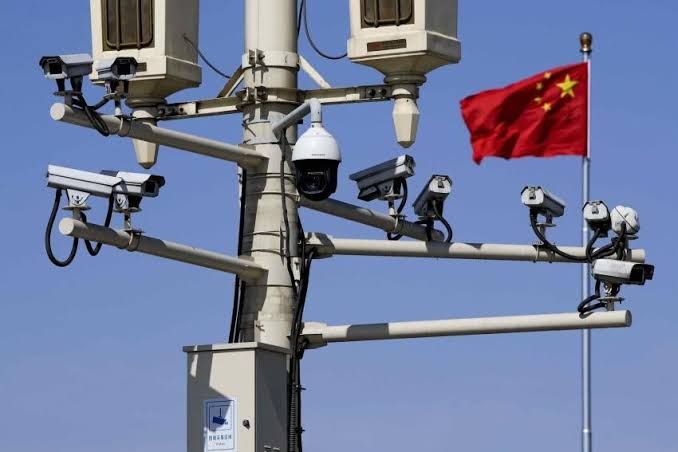China's Surveillance and Rating System: Technological Progress or Human Rights Violation?
The Chinese social credit system is a national monitoring and rating system that evaluates citizens' behavior and activity in various areas. It aims to promote positive behavior and punish negative behavior in order to promote social stability and increase people's credibility. Regarding smoking and misbehavior on trains

The Chinese social credit system is a national monitoring and rating system that evaluates citizens' behavior and activity in various areas. It aims to promote positive behavior and punish negative behavior in order to promote social stability and increase people's credibility.
Regarding smoking and misbehavior on trains specifically, the social credit system in China has rules and penalties for such actions. Smoking on trains is prohibited in China, and if someone is caught doing so, they may be fined, which could affect their credit score. A lower credit score could, in turn, affect a person's ability to obtain loans, find employment, or even travel, as some transportation companies may refuse to provide services to individuals with low scores.
Similarly, misbehavior on trains can also affect a person's credit score. For instance, if someone disturbs other passengers, leaves trash behind, or drops a bag that could injure others, they may be fined, and their credit score may be lowered.
The Chinese social credit system is a comprehensive monitoring and rating system that covers various areas, including behavior on trains. Its aim is to punish negative behavior and promote positive behavior to create social stability and credibility.
Here are some more detailed examples of the Chinese social credit system:
Traffic violations: In China, traffic violations are recorded and can affect an individual's credit score. For instance, if someone fails to pay a traffic fine, their credit score may be lowered, making it difficult for them to obtain loans or find employment.
Financial responsibility: The social credit system also monitors an individual's financial responsibility, such as credit card payments and loan repayments. If someone fails to make timely payments, their credit score may be lowered, affecting their ability to obtain credit in the future.
Environmental responsibility: The Chinese government is committed to reducing pollution and promoting environmental sustainability. Therefore, the social credit system also evaluates individuals and businesses based on their environmental responsibility. For instance, companies that violate environmental regulations may face penalties and have their credit scores lowered.
Online behavior: The Chinese social credit system also monitors individuals' online behavior, including their social media activity. Negative online behavior, such as spreading rumors or engaging in cyberbullying, can lead to a lower credit score.
Travel restrictions: Individuals with low credit scores may face travel restrictions, such as being denied access to certain modes of transportation or being unable to travel to certain countries.
These are just a few examples of how the Chinese social credit system works. It is a comprehensive monitoring and rating system that covers various areas of individuals' lives and behavior, with the aim of promoting positive behavior and punishing negative behavior to create a more stable and trustworthy society.
The social credit system in China is based on a numerical score or rating, which can range from 350 to 950 points. The higher the score, the better a person's credit rating and reputation. On the other hand, if someone's score drops below a certain threshold, they may face negative consequences, such as restrictions on their ability to obtain loans or access certain services.
If an individual's credit score continues to decline, and they run out of credit points, they may face even more severe consequences. For example, they may be denied loans or credit, or have their existing loans and credit lines revoked. Additionally, they may be restricted from traveling, such as being unable to purchase plane or train tickets. Some job positions may also be unavailable to those with low credit scores, particularly in positions that require trustworthiness or financial responsibility.
In some cases, individuals with very low credit scores may even face public shaming, such as having their names and photos posted on billboards or public screens. The aim of such public shaming is to encourage these individuals to improve their behavior and improve their credit scores.
It's important to note that the social credit system in China is complex and can be affected by many factors. However, the general idea is that individuals with high credit scores are seen as more trustworthy and responsible, while those with low credit scores may face restrictions and negative consequences.
The social credit system in China is primarily controlled and monitored by the Chinese government and various government agencies. The technical infrastructure that underpins the system includes a wide range of IT solutions, such as artificial intelligence (AI) algorithms, big data analytics, and facial recognition technology.
While some IT companies may have played a role in developing specific components of the social credit system, such as the software and hardware used to monitor traffic violations or environmental violations, the system as a whole is primarily developed and managed by the Chinese government.
It's worth noting that the social credit system in China has been the subject of controversy and criticism, both within China and internationally, with concerns raised about potential violations of privacy and human rights. Nevertheless, the Chinese government has continued to develop and implement the system, with the aim of creating a more stable and trustworthy society.
In recent years, China has made significant strides in several areas, including technology, science, and the economy. One area where China has been particularly active is in the field of artificial intelligence (AI).
The Chinese government has made AI development one of its key strategic priorities and has invested heavily in AI research and development in various fields, including healthcare, transportation and logistics, and agriculture. In addition, China is planning to develop global standards and guidelines for AI.
In addition to AI, China has also continued to invest in the development of green technologies, including renewable energy, energy storage, and waste recycling. The Chinese government has set a goal of achieving carbon neutrality by 2060, which requires a strong focus on innovative technologies to reduce pollution and improve the environment.
Overall, China's next major achievements may be related to AI and green technology, but the development of other fields, such as biotechnology, could also lead to significant progress and improvements in society's well-being.




